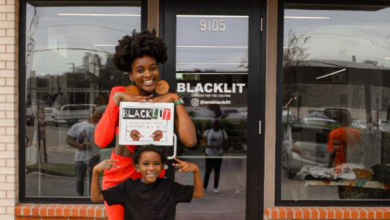This Black-Woman-Owned Tech Platform Allows People to Represent Themselves in Court

Courtrooms are stacked with cases and millions of Americans face a major disadvantage when they go to court without a lawyer. Black professors, Sonja Ebron and Debra Slone worked to change that.
The two operate a management platform known as Courtroom5 to provide clients with everything they need to represent themselves in court. TechXplore reported that the platform is one of the few Triangle startups founded by Black women.
The two professors launched the platform in 2019 to offer step-by-step guidance on navigating civil cases, in addition to understanding paperwork and important information needed to prepare. The company also provides automated templates for users to write pleadings and motions.
According to Forbes, the five-step process provides an affordable system for litigants to hire legal experts to help with limited portions of their cases.
“People are very intimidated when they go to see a lawyer, or when they go to see a judge. But the civil procedure is just about what information they are asking,” said co-founder, Ebron, who previously taught electrical engineering. ”
“…We give that information to help them answer that question and choose from a limited set of options.”
Ebron has a PhD in electrical engineering with a background in artificial intelligence, and Slone, wife and co-founder, is a PhD librarian and expert in qualitative data analysis.
After a share of their own failed attempts representing themselves, they recognized the importance of providing courses and workshops on how clients should represent themselves in a court case.
“Our goal is to give people a chance,” she said.
Reportedly, the company isn’t employing its own lawyers, however, it’s working to provide a service where clients have connections to lawyers on an individual basis.
“There are times where you want to have a phone consultation or have a lawyer go argue a motion,” Ebron said. “We want to have lawyers available on a task basis. Not full representation…but users might be happy to spend a few hundred dollars to have someone argue a motion or $50 for a phone conversation.”
[ad_2]
Source link







